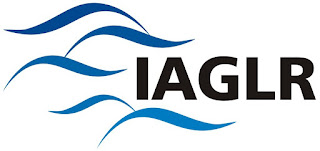Presentations will discuss a range of issues that help determine just what eats what in the lake. Several will focus on what happens to the diet of native species when invaders like quagga mussels, round goby, spiny water flea deplete food resources. Others will introduce how shifts in phosphorus and other nutrient levels may be behind recent changes at the bottom of the food web and compare the eating habits of forage fish over the last two decades.
The session is a part of ongoing regional efforts to improve understanding of the complicated relationships between the many different microbes, plants, and animals that call Lake Michigan home. Since 2010, IISG and other partners in the Great Lakes Regional Research Information Network have funded several studies on the links that form the food web.
In addition to serving as co-chair, Tomas will join researchers from across the Great Lakes to present the findings of three studies slated for the session. For a description of these and other presentations, visit the session schedule and click on the presentation titles.
The International Association for Great Lakes Research’s (IAGLR) 56th Annual Conference on Great Lakes Research is sponsored by IISG and Purdue University. To view the entire program, visit the conference website.


